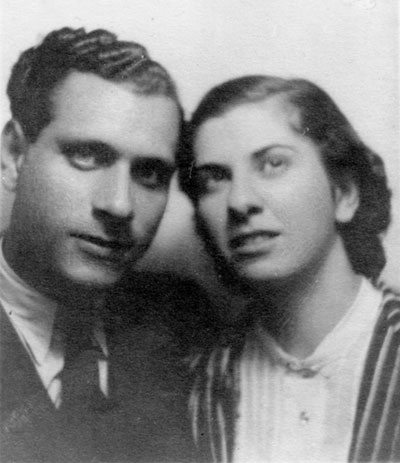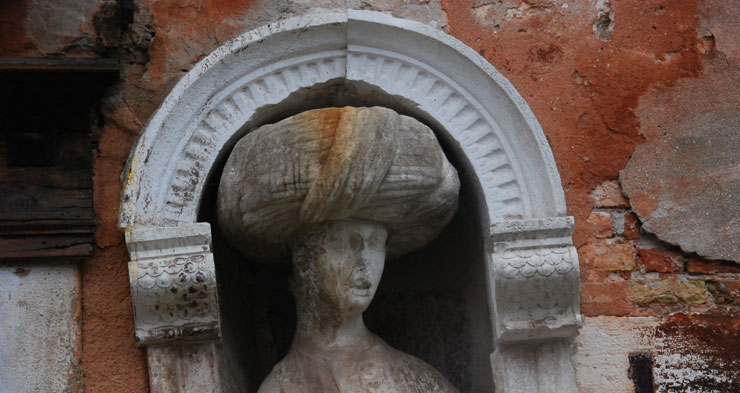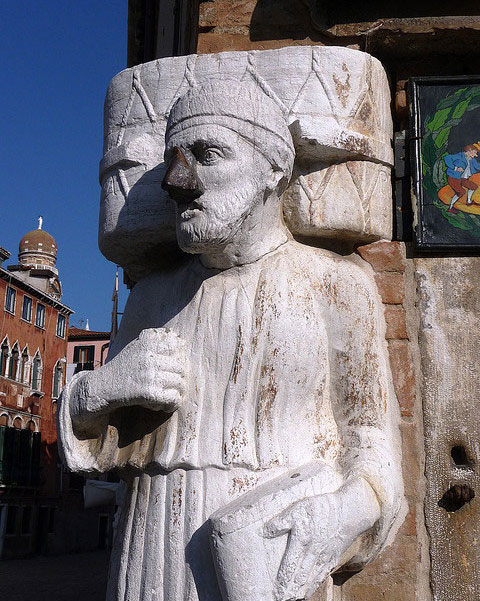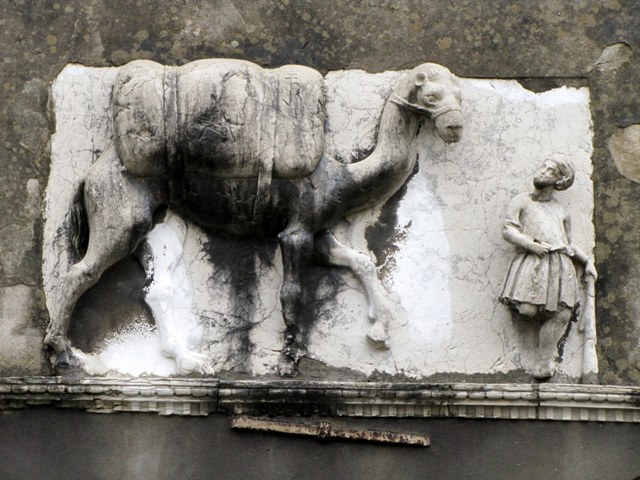
The Interviewees
Herve Georgelin | Pelin Böke | Alex Baltazzi | Axel Corlu | Philip Mansel | Antony Wynn | Fortunato Maresia | Vjeran Kursar | Christine Lindner | Frank Castiglione | Clifford Endres | Zeynep Cebeci Suvari | Sadık Uşaklıgil | İlhan Pınar | Ümit Eser | Bugra Poyraz | Oğuz Aydemir

Interview of Axel Corlu, on his thoughts on Levantine Identity
1- What does identity mean to you. Is ancestry always relevant?
Ancestry by itself might or might not be relevant to an identity, there are too many variables/differences between people to generalize, and it is a very personal, existential issue. For me, my identity certainly includes substantial elements of the family cultural and historical background, so yes, ancestry is quite relevant. I like to think of “family” in a very inclusive, long-term, Braudelian sense; thousands of years of continuity, struggles, successes and failures of my ancestors, drip by drip accumulating the real legacy of the family.
2- Levantines by nature have a multiple mixture of identity strands, their ancestors came from one than one country and the country they live in is again separate. Does this make them special, more worldly and knowledgable?
Before the new rise of globalization (it is not a new phenomenon, of course, but this newest incarnation is without a doubt the most penetrating and comprehensive of all globalization cycles), Levantines certainly had an advantage in worldliness and knowledge of the world, not to mention the perspectives they were able to utilize. No other group of people in the Mediterranean (or anywhere else, for that matter) had the vast, widespread cultural-historical resources, the connections, or the ability/opportunity to synthesize these aspects in real life that the Levantines had in their particular moment in history (“moment” here is defined as roughly 2 centuries, from the 18th, to the early 20th). These days, the Levantines’ uniqueness in this regard is no longer the case, and in my experience, the latest generations of Levantines are somewhat less likely to be as multicultural, worldly, etc as their illustrious polyglot, cosmopolitan ancestors. There are always exceptions, but I see this this as the current trend.
3- Is there something quite solid in Levantine identity, one that can survive outside the Levant, even through a few generations. Or is there a romantic mysticism that can cloud the issue?
I think there’s a bit of both; yes, the identity itself is quite “solid”, but no identity exists outside of its material context, and if you remove parts or the entirety of that context, its survival for the immediate generation, and perhaps its offspring is quite normal and expected, but beyond that the forces at play are too large to claim it can survive indefinitely, at least in the form we understand this identity at the moment. The romanticizing of Levantine identity is a large issue, and I think deserves a more thorough discussion, but let me say that it exists both within and without the Levantine community, and its presence is not always/necessarily harmless.
4- You have chosen like many others of your generation to make your future outside the Levant. Will there always be a tension in you that you are outside your cultural cradle, or is the new cultural admixture you are exposed to just another Levantine layer?
I think of it yet another layer, yes. I’ve moved here to New York at age 25, so the formative years of my life took place in the Levant, with all the cultural legacy and existential experience that implies, but do not feel “out of place” here, as much as I miss Izmir. As I said in the previous question, however, I worry about my family’s next generation, for the reasons I explained there.
5- Tell me a bit about your ancestry? When you study these people can you see the world their eyes, or is this a fallacy we can kid ourselves?
As with many Levantines, I’m the result of quite an ethnic cultural mix; there are elements of Italian, Greek, French, and Armenian in the immediate mixture of my family, with an even longer list of origins if one looks back beyond 2-3 generations. If by “study” we mean a personal quest to learn more about one’s ancestors, I frequently feel like I can see glimpses of the world they lived in, as they saw it, but no more. As a historian, it gets more complicated; not only are there issues of objectivity (hotly debated for a long time to the point that some argue it never existed) and historical methodology, but also the understanding that a historian is not a supercomputer of facts and analyses, but is informed and enriched by existential connections to a subject. In that sense, a good historian must be able to step into the shoes of the people s/he’s studying, and that’s what I’d like to think I am doing. Even then, though, it is important to realize that we’re “filling in the blanks” on many unknowable, unreachable experiences. As long as this remains a controlled, self-aware exercise, it is valuable.

My grandparents Angelo Bertamini and Olga nee Stratigopulo (married in 1942) - more family archive images:
6- Do you have any anectodes from your elders that conveys a sign of their times?
There is a large number of anecdotes, of course. One that everyone in the family has told many times involves my grandmothers’ nebulous grasp of Turkish; when she went shopping, she would ask the butcher if he had any lamb’s brain, but used the wrong word [akıl] which meant “mind”, as in “do you have any mind?”. They all knew her, of course, and understood her creative use of Turkish pretty well. There are many other experiences like this one; I chose to relate this particular one because it displays the depth of the Levantine community from her youth. One could go through life with just a basic knowledge of Turkish (I’m not saying this is a good thing, but just a fact), because most everyday and social functions involved other Levantines. Today, not only is the total number of Levantines far smaller than in her lifetime, but many Levantines can barely communicate in their -other- native languages, and typically use Turkish as their main language.
7- Is romanticisation of the past a danger in history and genealogy?
Very much so. At an extreme, it can substantially distort one’s view of historical reality, process, and causation. Of course, as in everything, there are different levels of romanticization. But even a mildly romanticized feel for/understanding of history and one’s own ancestry (and who doesn’t experience that? We would not be human if we didn’t introduce some level or “personalization” to such matters) needs constant self-awareness, because this harmless, “human” dimension can easily spiral into a different thing that encompasses one’s worldview and starts to insert elements of fiction in it; a fiction repeated often enough becomes a “reality” of sorts for its adherents, the beginning of a dangerous path.
8- Do you see yourself as having a role to play in recording and analysing the heritage?
Certainly. Both in a personal and professional sense, I see it as my calling to offer what I can in this sense. I also feel that the field of studies in Levantine history and culture has been sorely lacking in a mixture of compassion and historical, analytical rigor. What we have at the moment, with all due respect to the various authors (and with a very few exceptions), can be placed in one of three unfortunate categories: the first category has a heavily romanticized mix of hagiographies and nostalgia masquerading as historical research; the second one is made up of the studies that come from social scientists who concentrate on one element of the heritage (economic history, or maritime history, or architecture, for example) and miss the big picture; and the third category has studies that aim to “get” the big picture, to show the Levantines as real people with not only a past, but a present, and perhaps a future, but unfortunately are written by “outsiders” who cannot inject the necessary dose of existential experience where it is sorely needed, resulting in a lack of depth, for all the impressive analytical work.
9- You are aware of the Levantine Heritage group project to record interviews and other aspects of Levantine culture. Do you think this is sufficient, can it be improved?
The Levantine Heritage group performs a valuable service for our community, no question about that. Of course, everything can be improved, and I see a very encouraging, open-minded willingness to listen and to experiment that is certain to produce improvements. Interviews are part of an oral history that needs to be recorded, and irreplaceable, but I also see more institutionalization and different kinds of research/activities in the future of this group.
10- We as a group of Levantine Heritage are currently in the process of becoming an official organization, which areas do you think we should concentrate in?
Four thoughts: first, the longevity and impact of an organization like this depends on continued financial security and visible public service (they reinforce each other), so as effective as the internet is for outreach, means other than the website need to be developed for people to connect.
Second, one of the major killers of such organizations is internal instabilities caused by gradually entrenched opinions and practices; it is easy to say “every voice counts” at the outset when there’s a great deal of optimism and energy, but ensuring that this atmosphere continues in the long-run without devolving into self-destructive tendencies requires “baked-in,” clear-cut, written institutional guarantees about both the form and the nature of debate and disagreement from the beginning.
Third, the ability of this organization to maintain its momentum and gradually increase its influence in the NGO-filled battleground (and make no mistake, it is a battleground) of public debate also depends on its crystal clear neutrality when it comes to political or religious affiliations. In places like Turkey, there will be forces that will quickly label the organization a “foreign influence” or a “missionary expedition” for the slightest excuse. That excuse should be denied.
And the last thought is this: different activities such as community outreach, research, and global networking are all related, but each require focus and concrete strategies. The organization would benefit greatly if it develops distinct strategies for its intended fields of activity, and have dedicated people working in each field (this doesn’t mean a strict compartmentalization at all) according to the established strategies. While everyone should continue providing input in any subject they choose, the ability to refer to an established strategy by someone who spends much time in a particular field is the difference between institutional chaos and measured progress in an organization like this.
11- Do you think Levantines can survive as a cultural group in the future?
The short answer is no, unfortunately not. The historical forces that caused the creation of a distinct group of people like the Levantines can also unmake them. Levantines (in the most inclusive definition of the term) were created by the trade, politics, and warfare dynamics of the Mediterranean world over the course of nearly two thousand years; many of these dynamics have ceased to exist, while others have changed shape. In a geography that was shaped by the presence of two imperial domains (Byzantine and Ottoman), there are now nation-states with very different priorities, some of which do not rhyme well with the existence of groups such as the Levantines. Another historical force that enabled the creation of this community has been demographics; constant movements of migration within the Mediterranean world is at the heart of the creation of the Levantine community, but these movements have been greatly diminished in the last century. In the absence of such demographic support, a community cannot keep its cultural-historical identity cornerstones without extreme isolation from the the societies in which it exists, and isolation has never been a Levantine dynamic. The gradual assimilation (distinctly different than the process of synthesis) of Levantine communities into the larger society has been going on for nearly a century, and the results are all too visible today: in my generation, the number of Levantines who can count on 2 or more native languages, have grown up in a cultural environment distinctly Levantine, and are able to clearly define themselves as such was fewer than any generation before. The next generation is showing signs of even fewer cultural building blocks that have defined us for so long, and this change is not merely a changing of the definition of Levantine into something new, as a living culture must, but is, I repeat, an assimilation. So this was my “short answer;” for the long one, we’ll need much more time and space.
12- Do you think Izmir could do a better job promote itself for business and tourism, drawing on its multi-cultural past and excavating and exposing its remnant buildings that even most locals are not aware of?
Without a doubt. Izmir likes to boast of its history and culture within Turkey every chance it gets, but it has done precious little to preserve the material legacy of its many cultures, and failed to protect even some of the architectural landmarks from intentional and “accidental” degradation and destruction. This legacy has been steadily eroded to the point where unless Izmir takes a strong stand in protecting what it still has, there won’t be much left to “sell” to the outside world other than words.
13- Do you think the Fire of Smyrna still has an importance and lasting effects till today?
The Fire enabled a “blank page” on which a new paradigm of society could be built for a new political entity, without the “bothersome” physical reminders of its past. The destruction caused by the Fire has far deeper and long-lasting consequences than the burning of a bunch of buildings; it represents the sound of the hammer of nationalism on the anvil of the republic, with the historical legacy of Izmir in between.
14- Levantines have sometimes been portrayed in negative terms in Europe and the post-Ottoman nation-states. Why do you think this is the case?
Levantines need to understand that they are their own people. They are not Italians. They are not French. They are not Dutch, British, or Austrians. They are not Greeks, they are not Armenians. They are not Turks. They are not Arabs. They are something else, something unique. Without thoroughly understanding this, one cannot understand the long-standing disdain heaped upon the Levantines by the West. For the West, the Levantines were the bizarre, unknowable offspring of a mixture of cultures; on the one hand, their ways were not too alien that they could be classified as the “other”, there was enough recognizable in their cultural make-up that suggested an “infestation” of the “original” culture to people who viewed their own identity as unchanging and “pure”. On the other hand, they represented the “outside world” to societies that had been relatively isolated from the rest of the world for centuries. In other words, and to make some simplifications, until the age of explorations, the West was connected to the rest of the world by the very people it would later disdain, a people forged by that connection, a people that served as the blood in a civilization’s veins; a historical paradox if there ever was one.
15- You have lived in New York for many years; how you would see similarities in pre-1922 Smyrna in its diversity and dynamism, or if this is a different world altogether
Pre-1922 Smyrna and NYC of the same time certainly had many similarities in terms of the heterogeneity of their population, the distinct nature of the cultures and the physical space they occupied, despite the “melting pot” dynamics. I would say that the situation is very different now; New York is still a vibrant, multi-cultural immigration magnet, and while the older waves of migrants have become more or less “American”, the overall esprit is comparable to its past. Unfortunately, this is not the case for Izmir. The remnants of the once-vibrant communities are barely able to survive, and homogeneity, not heterogeneity, monoculturalism, not multi-culturalism have been the norm for decades. Perhaps the size of the two cities has been a factor in this, but no one can discount the element of systematic, targeted oppression in the Izmir case, something New York never had to deal with in such continuity and scale, despite the two Red Scares (1919-21 and the McCarthy era) and occasional anti-immigrant campaign.
My life in New York has two sides: when I visit the city itself, I feel very much part of its spirit, and appreciate the dynamism of the place, but it is a tiring place, that has to be said. Most of my life is in upstate New York, however, and it is a very different environment; the Finger Lakes region has beautiful nature, relatively low population density, and offers a more relaxed lifestyle. At the same time, the cultural cross-section is much less varied than the city itself, but there are significant populations of Greeks, Italians, and Eastern Europeans and their descendants, so finding specific items for food, for example, is not a great problem.
16- Turkey is a rising nation in terms of economic revival recently while most of the world seems stagnating and poised on the edge of disaster with countries needing repeated financial bailout. Do you think factors such as the Arab Spring and Izmir’s past dynamic export tradition could create a new chapter for the city?
I am uncertain on how the dynamics you mention will influence the future of Izmir. Izmir has been systematically under-funded, under-invested, over-taxed, and these broad trends still continue. The fact that Izmir resolutely and consistently opposes the AKP era does not help, either. This is ironic, of course, since the previous administrations treated Izmir with the same degree of disdain and neglect, so in systemic terms, nothing has really changed, Izmir is still very much the unwanted orphan of the system. Turkey’s economic revival should probably not fool us, because it is not independent of global dynamics, and certainly not independent of regional economic crises. In the last three decades, Turkey’s economy experienced great growth spurts, but also suffered tremendous damage on a regular basis, about once a decade. The fact that this has not happened as visibly in the last decade does not mean that the “revival” is on strong grounds, or that Turkey can shrug off the turbulence that is engulfing much larger economies. Izmir’s future, economic and cultural, remains in its ability to leverage its independence, its “orphan” status into becoming the center of its own sphere of influence, and this cannot happen without embracing its struggling minorities in real, tangible ways, not through mere gestures and rhetoric.
17- Your interests and areas of research include a history of food, can you tell us more? You probably know there is a small group in Izmir researching, collating and about to publish a book on ‘lost’ recipies from old Levantine diaries and note-books. Do you think in today’s world we underestimate the part culinary heritage plays in our community / social culture?
While all areas of the history of food are of interest to me, I mainly specialize on the modern “nationalization” of food in the Eastern Mediterranean. Food items that have been there for millennia, are now being commodified, nationalized, even patented. You cannot sell “feta cheese” anywhere in the EU now because Greece has acquired a trademark/patent; the cheese itself has been produced in a geography including today’s Lebanon, Syria, Turkey, Armenia, Georgia, Bulgaria, Romania, most of former Yugoslavia, and Greece, but now only cheese produced in Greece can be labelled “feta”. There are similar attempts by Turkey, Greece, and Lebanon to acquire “rights” to items such as baklava, stuffed grape leaves, etc. This is plainly ridiculous, and more than a little sad. This is the common wealth of our heritage, and it existed thousands of years before these nation-states and their virulent nationalisms. And believe me, this food will be there long after the names of these artificial countries are forgotten.
I am aware of the group you’ve mentioned, but I have not been involved with their projects so far.
To answer the second part of your question, yes, of course food is an integral part of culture and heritage; it is, in many ways, the most enduring and stubborn element of identity, to the extent that migrants to other lands who have lost every other signifier of their country of origin hold on to the food generations after the initial migration. Food is not just nutrition, it has never been just that. It is who we are. Just like ourselves, it changes over --long periods of-- time. Which is why, in the age of nationalism, people get so upset about these issues; as misguided as their priorities and knowledge of the world is, they are spot-on in their existential connection to their food. Levantines have been a very important part of the historical mixture that goes into food culture in the Eastern Mediterranean, of course. I’m not only talking about the introduction of new kinds of food, born from the synthesis of the East and the West, but also the establishment of various traditions of public eateries that people in Turkey take for granted these days, without realizing the origins of these traditions.
Short biography of Axel:
Axel Bertamini Corluyan was born in Izmir, 1974. Following his high school graduation, he left the city for the much-less green pastures of Ankara, where he studied Political Science and Public Administration at Bilkent University. The Ankara episode continued after the B.A. degree, this time with a period in the Sociology M.A. program of METU [Middle Eastern Technical University], simultaneous with his studies at Bilkent’s M.A. program in History. He came to New York in 1999 for the Ph.D. program in History at the State University of New York at Binghamton, and received his degree 12 years later, in May 2011. His fields of research and interest include social and labour history (U.S., Europe, the Middle East), history of warfare (Byzantine and Ottoman) and history of food. He has taught numerous classes at SUNY-Binghamton, and SUNY-Cortland, where he was a Visiting Assistant Professor. He lives with his wife Andrea in Skaneateles, New York.
Interview conducted by Craig Encer, June 2011.

Fondamenta dei Mori, Statue, Venice - The restoration of one of four turbaned figures set in and around the Campo dei Mori was undertaken in the late 1990s. This statue, the only one still unrestored, depicts a Levantine merchant named Alfani. It is set into the façade of a 15th-century house in which Tintoretto later lived. Analysis of the sculpture revealed that the pedestal was a local 15th-century version of a Roman altar and the turban a column capital reused. A general light cleaning and consolidation was undertaken, but no attempt was made to straighten the crooked sides of the niche or to remove completely the remains of pigment applied by past generations, as these were thought to be part of the history of the piece.

The fourth statue is believed to represent their servant.

